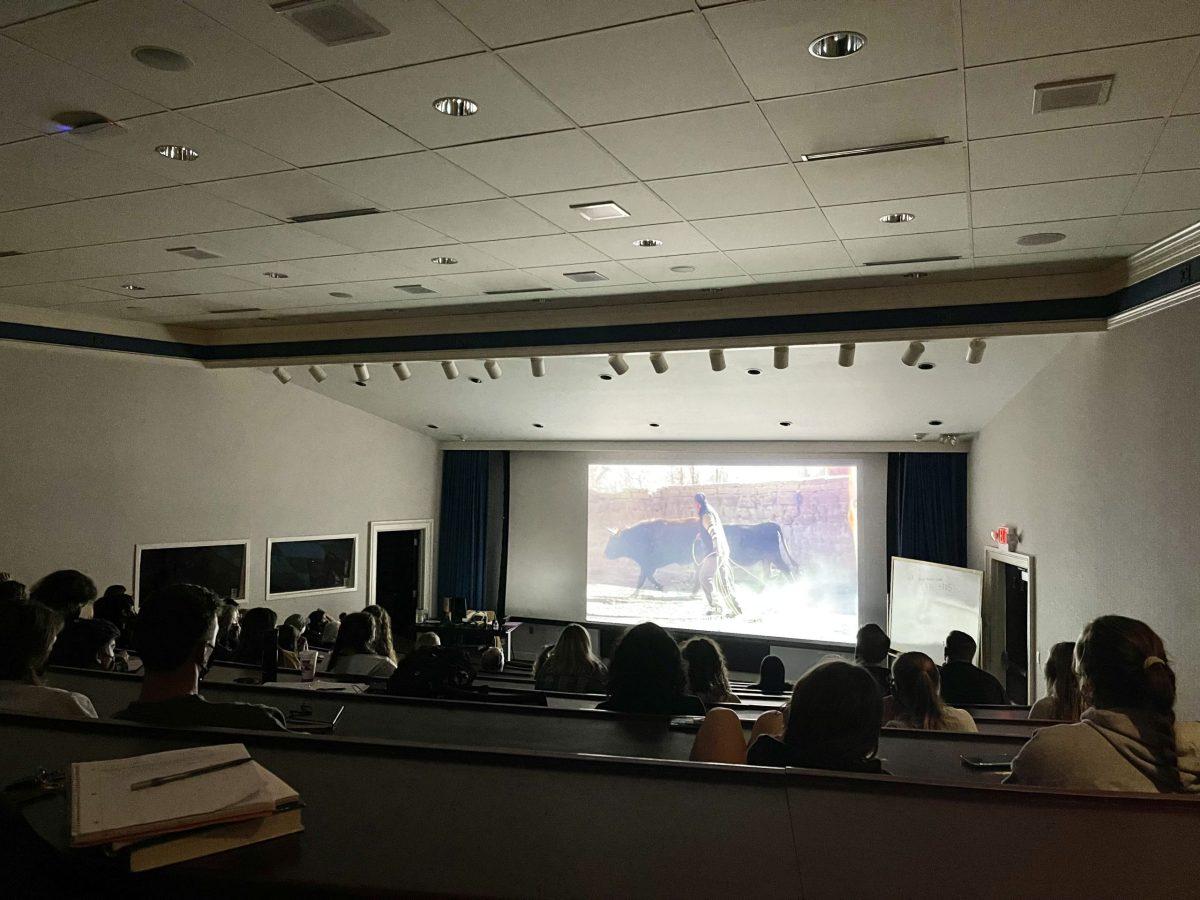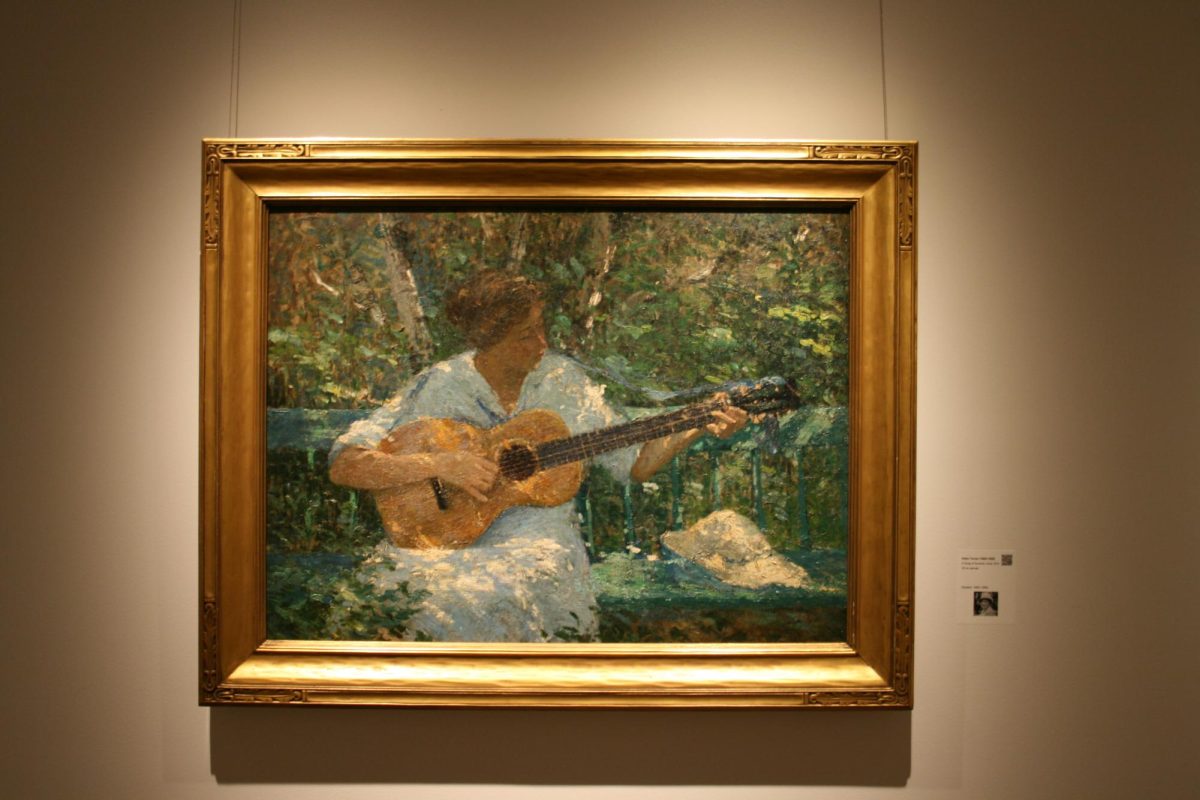On Nov. 9, the Modern Languages, Literatures and Cultures (MLLC) department hosted a screening of the documentary “En el nombre del litio.” The film, directed by Tián Cartier, premiered in Aug. 2021 and depicts the efforts of native Indigenous communities in northern Argentina to prevent their salt flats from being converted into sacrifice zones through lithium mining.
The plot centers around Clemente Flores, who lives in El Moreno, Salinas Grandes, Jujuy, where his community is fighting against transnational powers attempting to extract lithium, coined “the new white gold” of the world. Flores and his community fight to rise and resist the advances of the mining companies to protect their communities and the equilibrium of their ancestral lands.
The event was organized by Professor Lucía Aguero, visiting lecturer of Spanish. Following the film screening, a panel of Wofford and USC Upstate professors discussed elements of the documentary and its connection to other forms of social activism and environmental humanities.
The panelists included Laura Barbas Rhoden, professor of Spanish at Wofford; Tián Cartier, the film’s director; Julie Sexeny, associate professor of English at Wofford; Esther Godfrey, associate professor of English at USC Upstate; and Cissy Fowler, associate professor and Chair of Sociology and Anthropology at Wofford.
Cartier, an industrial engineer and director for his company Calma Cine, combines elements of traditional documentaries, fiction and cartoon characteristics and jarring transitions to create a film that is unique and impactful, mirroring the importance of the topic at hand.
Cartier described the five-year process of making the documentary as an arduous yet highly rewarding one. “It was challenging to make a local story with a global impact,” said Cartier. “I wanted to create a documentary as a character-driven movie with an animated narrative character without losing global perspective.”
To achieve this effect, the film crew used long shots and slower pacing when taking an in-depth look at the Indigenous, local communities and using high-speed monologue, multimedia scenes and collages of urban settings and technology to emphasize the global setting in which this struggle occurs.
The idea for the documentary arose when one of Cartier’s close friends, an attorney for Fundación Ambiente y Recursos Naturales (FARN), shared the community’s story with him. At first, the Argentine locals were wary of the team coming and wanting to share their story.
“The process took five years, and the community members were very suspicious,” said Lucia Aguero, discussing her husband’s experience with creating the film.
“For the first two weeks they were there, they did not even use their cameras in order to create the trust and respect necessary to do this,” continued Aguero.
The documentary premiered within the community at a night screening in the salt flats, using the starry sky as a backdrop, while inspiring the young people of the community to continue the resistance and fight for recognition and their lands.
Looking forward, Cartier hopes to continue using his filmmaking platform to create unique documentaries and provide social commentary on important issues. His next film is titled “Marks in the Skin,” a work using personal stories and physical marks on the skin to document social conflict in the forms of gender violence, agrichemicals, cancer and transgender violence, among others.
“I want to continue to make something with meaning,” Cartier said.
























